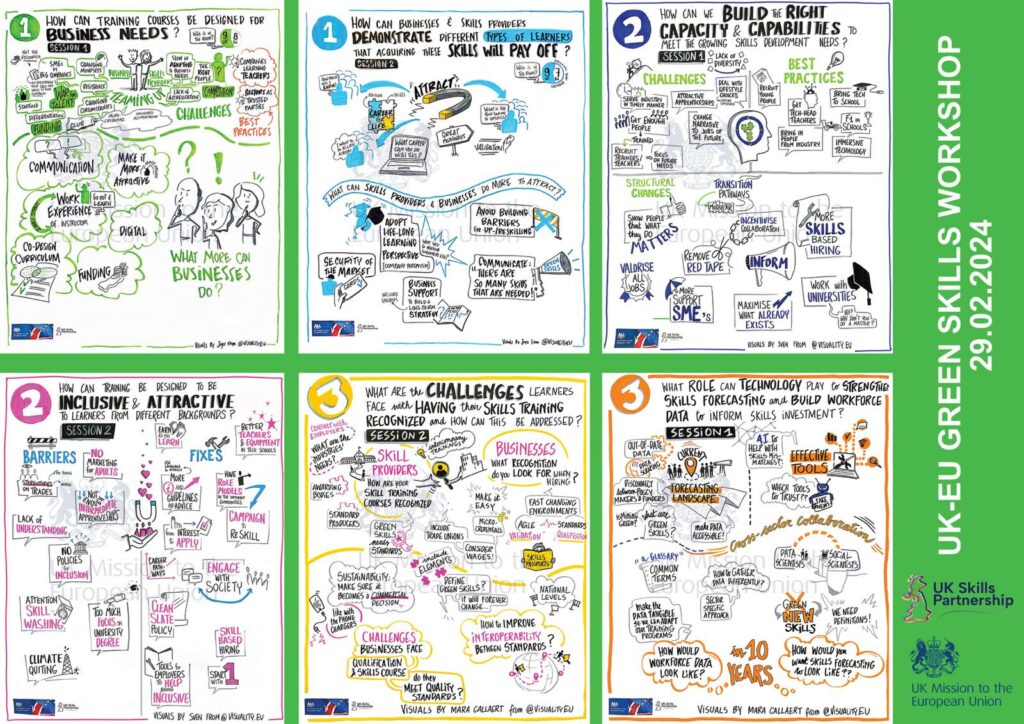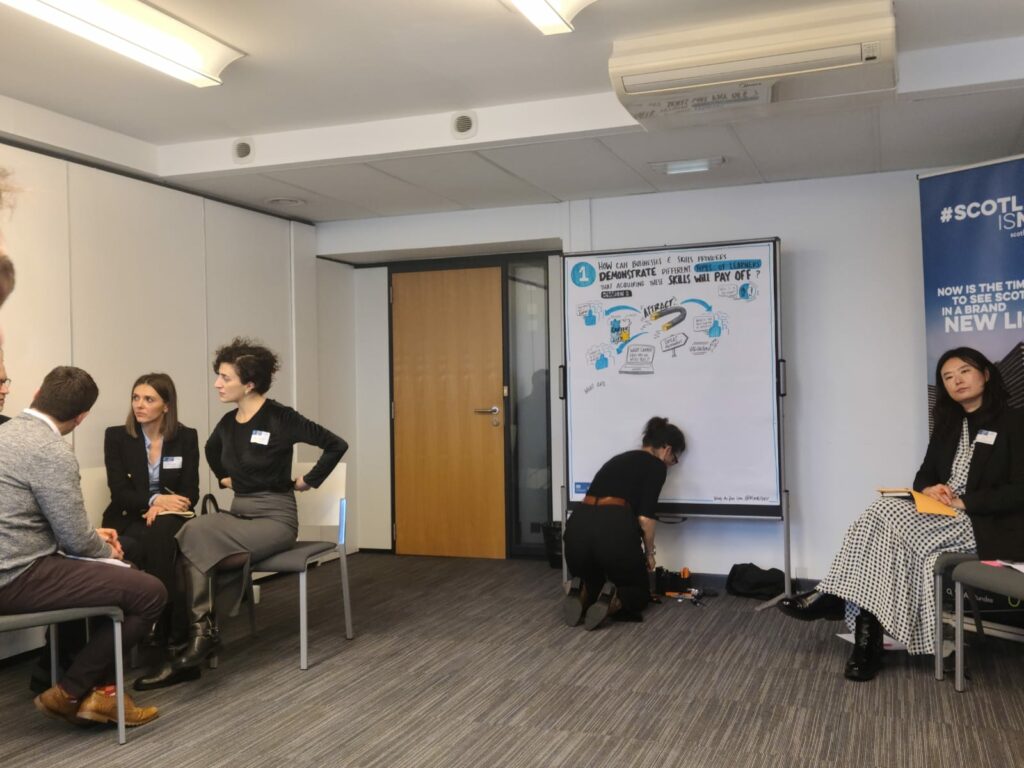EU-UK Green Skills Workshop: Cooperation for the future of skills
04/03/2024
On Thursday 29 February 2024, the UK Mission to the EU organised the UK-EU Green Skills Workshop, at the Scotland House Brussels. The event was an opportunity for over 60 participants from the EU and the UK to meet and discuss important issues such as how training courses can be designed to fit business needs and the role of technology can strengthen skills forecasting and build workforce data to inform skills investment.
The workshop was opened by a keynote speech from Dr El Iza Mohamedou, Head of the OECD Centre for Skills. Dr El Iza Mohamedou outlined that the projected growth in the renewable sector has increased, with an estimated 25 million jobs created by 2030. She highlighted that while many of these will be technical jobs, there is an important role for transversal skills, such as problem-solving, data analysis, data and digital literacy, client services and research and development. With regards to possible policy directions needed to tackle the skills revolution, there is an increased need for career guidance for adults and youth, access to education in rural areas, investing in green curricula and international collaboration for skills development. VET has a particularly important role in occupations impacted by the green transition, as VET aids the transition to greener sectors through skilling and upskilling in a targeted and efficient way.
Technology and skills forecasting: what future?
Following the keynote speech, participants were split into two breakout room sessions. EARLALL participated in the first one entitled “What role can technology play to strengthen skills forecasting and build workforce data to inform skills investment?”. The discussions were highly animated, with participants sharing their appreciation and uncertainty around new technology for skills forecasting. In this domain, the TRAILS – Enabling data analytics for actions tackling skills shortages & mismatch – Horizon Europe project, was extremely relevant. Among its results will be an innovative methodology to measure skills mismatches; an analysis framework of training in the area of artificial intelligence, as well as a selection of best practices for tackling skills shortages and mismatches in Europe. Moreover, the SKYLA, Smart Specialisation Skills Ecosystems for the Twin Transition project was discussed, as a concrete example for the region to improve their policies in the field of skills forecasting, including VET stakeholders. Those in the breakout session representing the VET sector shared that forecasting needs to be local, quick, relevant and easy to access for VET institutions, as teachers and staff need to then translate this data into practical courses.
The breakout sessions were an excellent opportunity to see the common challenges and opportunities in green skills for UK-EU partners. The discussions concluded with a plenary session, where all of the visual representations of the breakout sessions were shared and explained.






